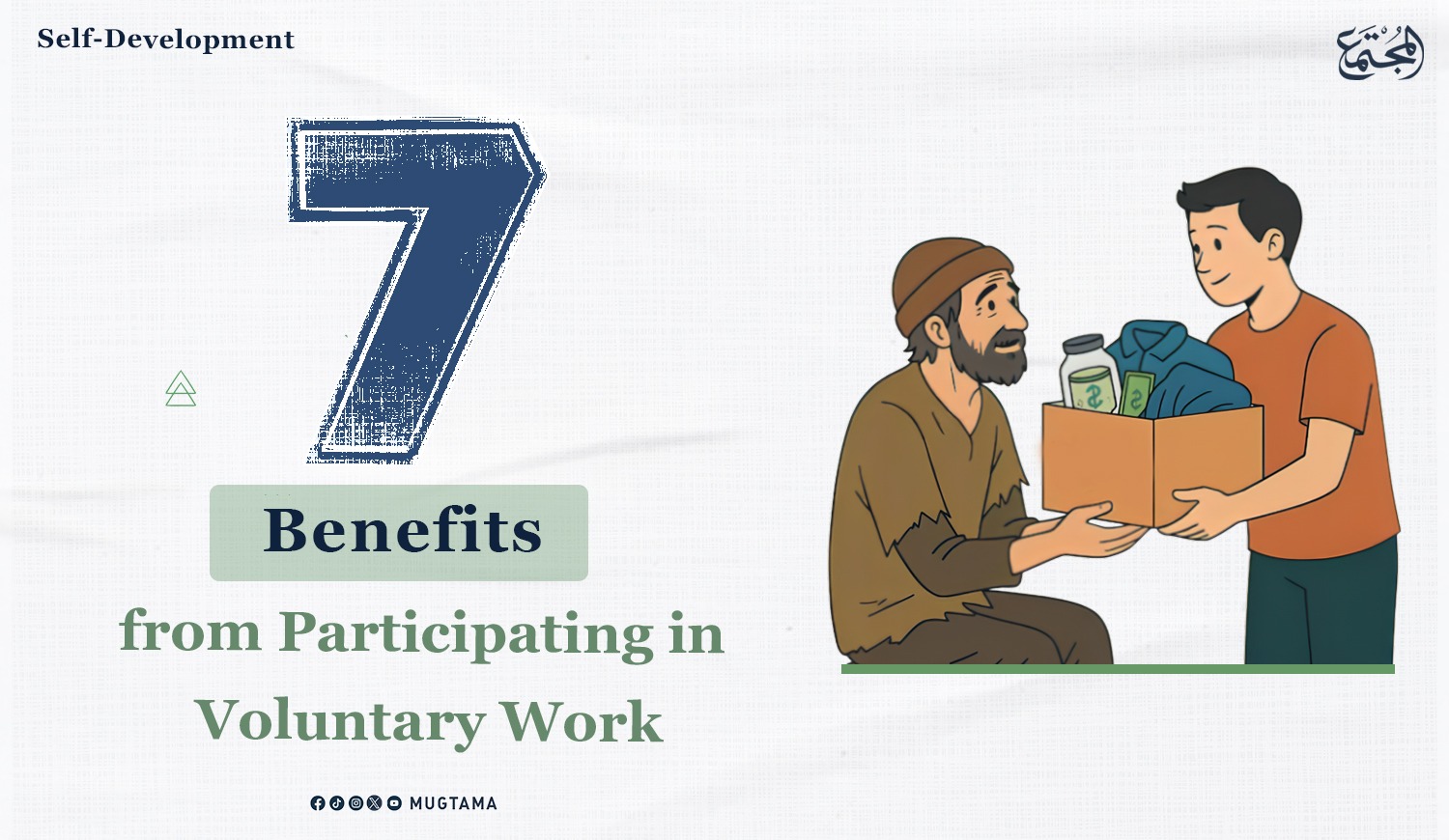7 Benefits from Participating in Voluntary Work

Charitable and voluntary work is a great
gateway to reaping psychological, spiritual, and social benefits—for those who
seek it—in addition to the immense reward and great recompense in the
Hereafter.
Allah Almighty says: “But whoever volunteers to give more, it is better for
them. And to fast is better for you, if only you knew.” (Al-Baqarah 2: 184). This is a clear
affirmation from Allah, the Exalted, of the great benefits of volunteering in
offering goodness to others—a truth that the Qur’an emphasized more than
fourteen centuries ago, and which has later been confirmed by modern scientific
and psychological studies.
The Quranic guidance encourages generosity,
urging members of society to do good, which in turn strengthens the spirit of
solidarity among people and fosters a culture of kindness and giving at the
community level.
The following lines summarize the benefits
you will gain if you are already engaged in voluntary work—or if you have not
yet, they serve as an invitation to set the intention and determination to
start participating in a voluntary activity that suits your community, time,
and circumstances.
First: Recent studies confirm
that charitable work brings great benefits
to its doer.
Most importantly, it fulfills the need for achievement and success, satisfies
the desire for self-realization, and makes one feel that life has meaning and
value.
Second: Voluntary work makes
the participant feel happiness.
When one offers services to those in need, brings joy to people’s hearts, eases their burdens,
and relieves their distress, they experience unmatched joy because they have
given something meaningful to others.
Third: Charitable work
provides a valuable opportunity to occupy time.
It helps eliminate idleness and is among the most positive activities to invest
one’s time in useful acts that benefit others. It also serves as training in
dealing with people and understanding community needs.
Fourth: It can be an effective
therapeutic experience for some psychological conditions.
Those suffering from depression or despair often need a positive sense of
self-worth and a renewed outlook on themselves—something voluntary work
provides. Interaction with others also creates a strong support network,
enhancing the sense of belonging and acceptance.
Fifth: Voluntary work helps
build skills.
These include communication, leadership, listening, speaking, organization, and
coordination. It also develops skills in dealing with the public, assessing
those who deserve help, and offering support in a respectful, kind manner that
preserves their dignity.
Sixth: One of the most
prominent benefits of volunteering is that it reminds participants of Allah’s
blessings.
When one observes the needs of those less fortunate—whether for food, clothing,
or money—they are reminded of Allah’s favors upon them, in line with His
saying: “If you tried to count Allah’s
blessings, you would never be able to number them.” (Ibrahim 14: 34).
Seventh: Voluntary activities
provide an opportunity to abandon bad habits.
For example, wastefulness and extravagance. Witnessing the hardships of those
in need pushes one to reconsider wasteful behaviors such as throwing away food
or spending money carelessly. It encourages recycling, better use of resources,
and even saving to avoid falling into the same circumstances faced by those
seeking help.
-------------------------------------------------------------
Read Also:
-
Economy of the Poor: Between Survival and Innovation
-
Insan Cham Charity in Melbourne, Australia... A Decade of Contributions











